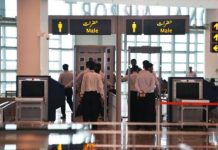Authors: Mustansar Siam and Nirmal Muneer
Since the war on terror has announced, the region has undergone various tumultuous changes that caused political instability and economic slowdown and provided the much-needed impetus to the religiously inspired elements. On August 30, 2021, the Pentagon announced that the last US flight carrying troops had left Afghanistan, concluding its longest war. Keeping aside the debate about who won in Afghanistan, it is a fact that the US and its ally’s long stay in the country has fundamentally jolted its socio-economic and socio-politico fabric. Resultantly, generations grew up knowing nothing other than the culture of guns, violence and bombs. The Taliban’s de-facto rule in Afghanistan faced various strategic, security, economic and ideological challenges. Additionally, the US withdrawal and Taliban takeover brought significant challenges to the foreign policy establishment of Pakistan and regional diplomacy.
Tehreek e Taliban Pakistan lost momentum in 2018 when Noor Wali Mehsud appeared as its new emir. The terrorist organization was at its weakest point because it had almost lost all its territories in Pakistan and faced several internal organizational issues. Later, TTP, under Noor Wali Mehsud, reorganized and redefined his goals demanding an independent state in Pakistan’s tribal areas. Muhammad Amir Rana, Pakistan’s leading security analyst and director of PIPS, estimated that TTP aspirations were aimed at seeking its lost legitimacy among the tribes what they learned from the Pashtun Tahafuz Movement (PTM) nationalist agendas. However, the interesting point is about the demand of TTP, which is less religious and more political.
The Taliban takeover of Kabul left hard policy options for Islamabad when it was extensively celebrated in Pakistan among religiously motivated groups. Islamabad was required to convince the Afghan Taliban to squelch TTP. However, Pakistan’s ambivalent approach towards Tehreek Taliban Pakistan paved the way for the resurgent group to reorganize itself. Resultantly, TTP escalated terror activities in late 2021 and started challenging security forces demanding the reversal of the FATA merger with Khyber Pakhtunkhwa. On July 26, eight Pakistani clerics were sent to Afghanistan to break the deadlock led by Mufti Taqi Usmani. Yet, the delegation failed to convince TTP to back from their demand of the reversal of the FATA merger. Pakistan’s security policy establishment failed to handle outlawed TTP as it is negotiating from a position of strength. This new facet of TTP given recent developments indicates the reasons behind their definite stance: (a) failure to convince Afghan Taliban to squelch TTP, (b) ambivalent approach towards outlawed terror organization, (c) state’s shifting policies and narratives, and (d) failure to counter TTP localization policy and nationalistic aspirations.
The comeback of TTP in Waziristan will have serious repercussions on the internal stability and peace of the country. Neither Pakistan’s economy can afford such instability, security, or foreign policy establishment, nor the country’s nationals if TTP joins hands with the Islamic State-Khorasan province, which will make it more powerful. Pakistan’s security policy establishment needs to outreach TTP and redefine its strategy to deal with the outlawed terror organization.
Mustansar Siam is a writer, columnist, political commentator and research scholar at the Department of Political Science, Government College University, Lahore.
Nirmal Muneer is a research scholar at the Department of History and Pakistan Studies, University of the Punjab, Lahore.












